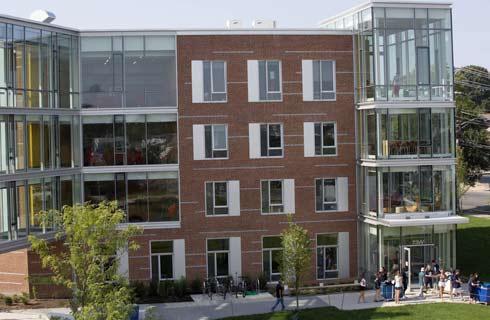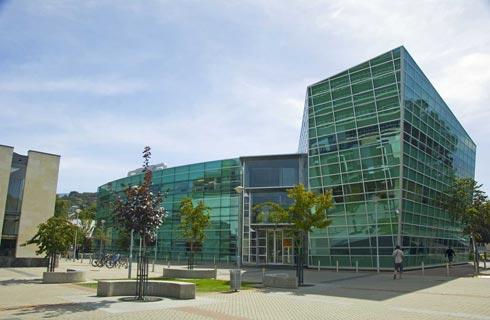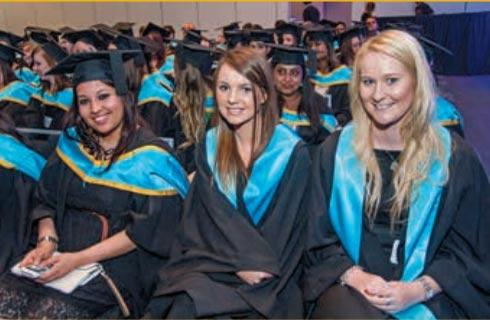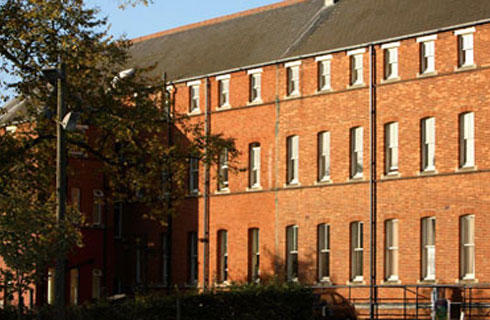- IDP China>
- 课程库>
- 自然科学>
- 生物与生物医学科学>
- 细胞生物学与解剖科学>
- Bachelor of Science in Molecular, Cell and Developmental Biology
分子生物学,细胞生物学和发育生物学学士学位
Bachelor of Science in Molecular, Cell and Developmental Biology

学历文凭
Bachelor Degree

专业院系
Molecular, Cell, and Developmental Biology

开学时间

课程时长

课程学费

国际学生入学条件
Freshmen may demonstrate competency by submitting scores from one of the following tests Please note that TOEFL IELTS or DET exam scores are preferred but the score from ACT English Language Arts or SAT Writing and Language can also be used to demonstrate English language proficiency.
Earn a grade point average GPA of 3.00 or better 3.40 or better for a non-resident of California in these courses with no grade lower than a C.
TOEFL Test of English as a Foreign Language Internet-based test iBT or iBT Home Edition Minimum score of 80 or better Paper-delivered test Minimum score of 60 or better.
IELTS International English Language Testing System Overall band score of 6.5 or higher includes IELTS Indicator Exam.
SAT March 2016 or later Writing Language Test 31 or higher.
SAT prior to March 2016 Writing Exam 560 or higher.
ACT combined English Writing or English Language Arts portion 24 or higher.
AP English Language and Composition or English Literature and Composition 3 4 or 5.
IB Standard Level examination in English Literature or Language and Literature 6 or 7.
IB Higher Level examination in English Literature or Language and Literature 5 6 or 7.
IDP—雅思考试联合主办方

雅思考试总分
6.5
- 雅思总分:6.5
- 托福网考总分:80
- 托福笔试总分:160
- 其他语言考试:Duolingo English Test DET Minimum score of 115.
CRICOS代码:
申请截止日期: 请与IDP联系 以获取详细信息。
课程简介
This is an extraordinary time to be involved in biomedical research. New technologies are rapidly changing our understanding of the molecular and cellular basis of life, with dramatic implications for how we treat human disease. The Department of Molecular, Cell and Developmental Biology, along with Biomolecular Engineering, Chemistry & Biochemistry, Microbiology & Environmental Toxicology, and Physics, is participating in a revolution in biomedical science. A broad spectrum of cutting-edge research tools are being employed to tackle problems in key areas that include: the structural and functional role of RNA in regulation of gene expression, chromatin biology and epigenetic control of genes, cell biology of the cytoskeleton and the cell cycle, decisions controlling embryogenesis and organ development, and developmental neurobiology. The insights generated by this research enable new strategies for treatments of aging disorders, birth defects, neurological diseases, cancer, and other human ailments.<br><br>Learning Experience<br>The department offers a spectrum of courses that reflect the exciting new developments and directions in these fields and trains students to participate in these fields. Students may plan a program that leads to one of several bachelor of science (B.S.) degrees (see also Global and Community Health B.S., Neuroscience, Biology, and Biochemistry & Molecular Biology).
相关申请
 预科
预科 奖学金
奖学金 实习机会
实习机会 在校学习
在校学习 跨境学习
跨境学习 校园授课-线上开始
校园授课-线上开始 在线/远程学习
在线/远程学习
开学时间&学费
学费信息仅供参考,请与IDP联系以获取详细信息
| 开学时间 | 时长 | 学费 | 地点 |
|---|
学校排名

世界排名167
数据源:
泰晤士高等教育世界大学排名
本校相关课程

数学哲学博士
学历文凭
Ph.D.
开学日期
课程费用总额


Doctor of Philosophy in Chemistry
学历文凭
Ph.D.
开学日期
课程费用总额


应用数学哲学博士
学历文凭
Ph.D.
开学日期
课程费用总额


Doctor of Philosophy in Sociology
学历文凭
Ph.D.
开学日期
课程费用总额


Doctor of Philosophy in Psychology
学历文凭
Ph.D.
开学日期
课程费用总额


政治哲学博士
学历文凭
Ph.D.
开学日期
课程费用总额

其他相关课程

细胞生物学哲学博士
 麦吉尔大学继续教育学院
麦吉尔大学继续教育学院学历文凭
Ph.D.
开学日期
课程费用总额


细胞生物学理学硕士(论文)
 麦吉尔大学继续教育学院
麦吉尔大学继续教育学院学历文凭
Masters Degree
开学日期
课程费用总额


解剖学和细胞生物学理学学士(荣誉学位)
 麦吉尔大学继续教育学院
麦吉尔大学继续教育学院学历文凭
Bachelor Degree with Honours
开学日期
课程费用总额


解剖学和细胞生物学理学学士
 麦吉尔大学继续教育学院
麦吉尔大学继续教育学院学历文凭
Bachelor Degree
开学日期
课程费用总额


细胞生物学哲学博士
 阿尔伯塔大学
阿尔伯塔大学泰晤士高等教育世界大学排名:119
学历文凭
Ph.D.
开学日期
课程费用总额


细胞生物学理学硕士
 阿尔伯塔大学
阿尔伯塔大学泰晤士高等教育世界大学排名:119
学历文凭
Masters Degree
开学日期
课程费用总额










 美国
美国
